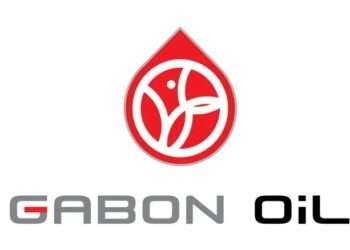Bright Simons, the Honorary Vice President of the IMANI Centre for Policy and Education, has once again provided a hard-hitting critique of Ghana’s approach to governance, this time through the lens of the country’s gold refining industry.
In his detailed opinion piece, Simons uncovered the troubling story of the Royal Ghana Gold Refinery, a state-backed project hailed as a transformative solution to Ghana’s longstanding struggle with value addition in its gold sector.
However, his investigations revealed a saga of governance failures, transparency issues, and questionable dealings that cast a long shadow over the country’s ambitious aspirations in gold refining.
“From the late 15th century to the end of the 16th century, some historical studies estimate that the area that became known as Ghana supplied roughly 30% of the world’s traded gold.
“Today, Ghana may supply less than 3% of the world’s traded gold, but that is still enough to make it Africa’s largest producer of the shiny commodity.”
Bright Simons, Honorary Vice President of the IMANI Centre for Policy and Education
Despite this, the nation’s gold output remains substantial enough to pursue downstream and midstream value addition strategies such as refining and bullion production.
Over the past two decades, private sector initiatives have sought to revive the dream of refining most of Ghana’s gold locally.
However, according to Simons, most of these ventures have failed due to inherent challenges in midstream value addition, poor policy implementation, and inadequate governance structures.
Simons reserved his sharpest criticism for the Royal Ghana Gold Refinery, a state-backed initiative hailed during its launch as the answer to Ghana’s gold refining challenges.
The refinery, which was presented as the first of its kind in West Africa—a claim Simons refuted—was expected to spearhead Ghana’s bid for international gold certification. Such certification would enable local refiners to sell gold at global prices and attract major gold producers to refine their output domestically.
“In Ghana, the situation is worsened by what I call ‘State enchantment.’
“Elaborate spectacles that not only distract attention from policy failure but also help siphon off the resources meant for policy implementation.”
Bright Simons, Honorary Vice President of the IMANI Centre for Policy and Education
According to Simons, the refinery’s true purpose appears to have been to enrich cronies through questionable dealings.
Ownership and Governance Questions

Central to Simons’ critique is the opaque ownership structure of the Royal Ghana Gold Refinery. The government claimed that an Indian company, Rosy Royal, owned 80% of the refinery.
However, Simons revealed that investigations by a top Ghanaian law firm, Bentsi-Enchill, Letsa & Ankomah, failed to verify Rosy Royal’s credentials. The Indian company refused to cooperate with due diligence efforts, raising serious questions about its legitimacy.
“I can exclusively reveal today that the due diligence failed. Rosy Royal refused to cooperate with the law firm.
“It could not answer any of the basic questions posed. Yet, the government went ahead with the jamboree.”
Bright Simons, Honorary Vice President of the IMANI Centre for Policy and Education
These findings, Simons argued, point to the possibility that Rosy Royal was merely a front for unnamed powerful actors in Ghana.
The lack of transparency surrounding the refinery’s ownership and governance has severely damaged Ghana’s efforts to secure international gold certification.
Large-scale gold miners, who were initially approached by the government to refine a portion of their output at the state-backed refinery, have distanced themselves from the project due to its questionable legitimacy.
This refusal has effectively derailed Ghana’s certification process, leaving the nation without the capacity to fully capitalize on its gold resources.
Simons also highlighted the failure of the Precious Minerals Marketing Corporation (PMMC) and its supervising Ministry of Lands and Natural Resources to provide explanations for the refinery’s governance and operational issues.
The Bank of Ghana, which has a vested interest in the project due to its purchase of locally refined gold for national reserves, has similarly remained silent on the matter.
Perhaps the most pressing issue raised by Simons is, “to who really owns the $80 million equity being fronted by Rosy Royal. We decided to send scouts and investigators to Gujarat to hunt down the mysterious owner of the company, Murtaza Sirajbha Samiwala.”
Simons concluded his analysis with a call for greater involvement of civil society organizations (CSOs) in the governance of development projects in Ghana and across Africa.
He argued that the participation of independent actors is essential to ensuring transparency, accountability, and the effective use of public resources.
According to Simons, the Royal Ghana Gold Refinery saga is not just a cautionary tale about governance failures in Ghana’s gold industry but a broader indictment of the country’s development finance governance.
Without significant reforms and the inclusion of CSOs, he warns, similar debacles are likely to occur in other sectors.
Bright Simons’ exposé highlighted the critical importance of sound governance and transparency in Ghana’s efforts to maximize value from its natural resources.
As the country grapples with economic challenges, initiatives like the Royal Ghana Gold Refinery should be pillars of growth and development rather than symbols of mismanagement and lost opportunity.
READ ALSO: Ablakwa Embraces ORAL Initiative, Urges Public Support in Combating Corruption





















